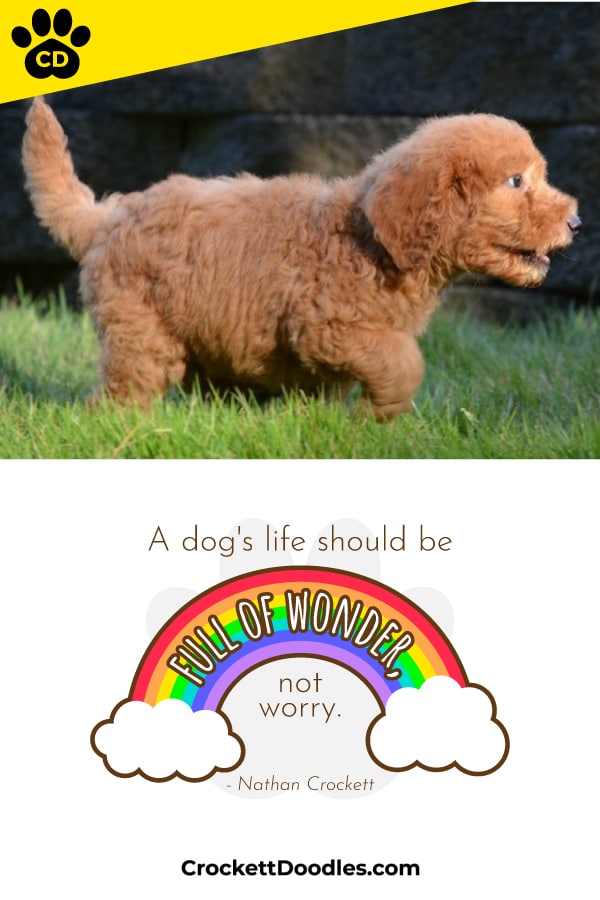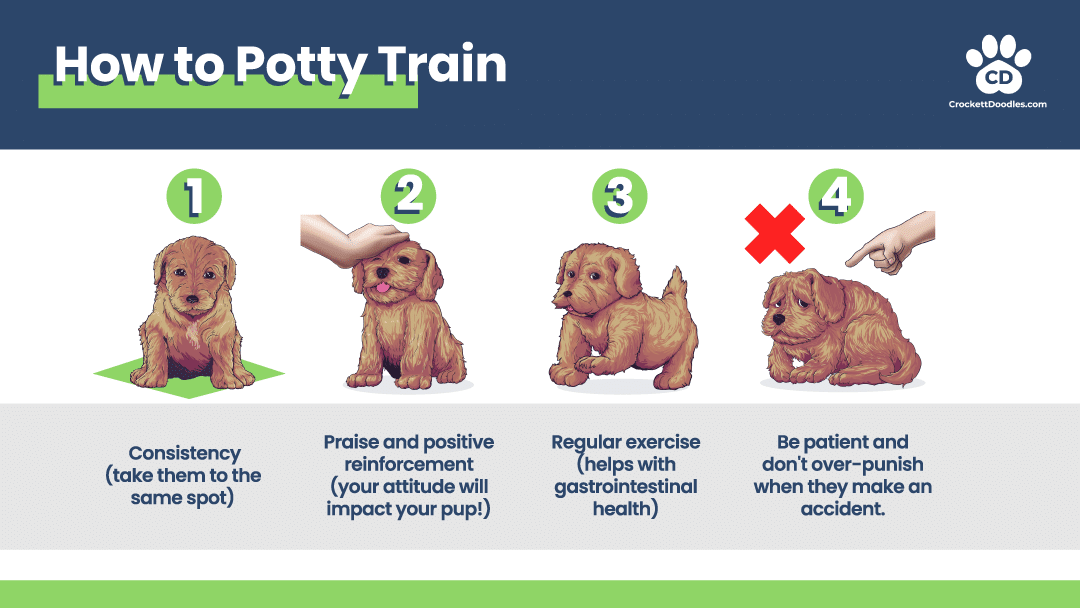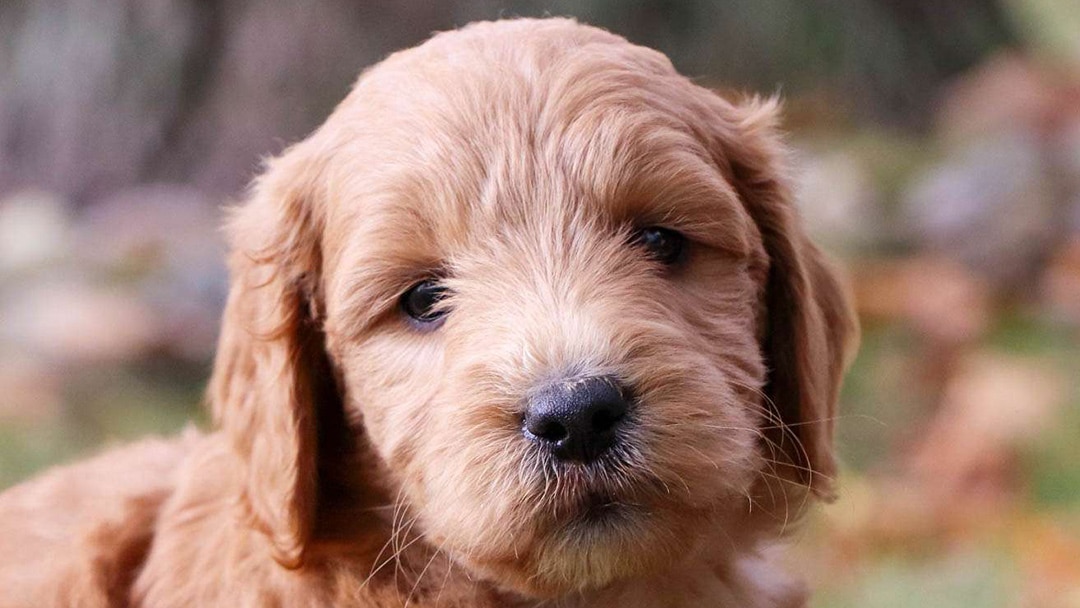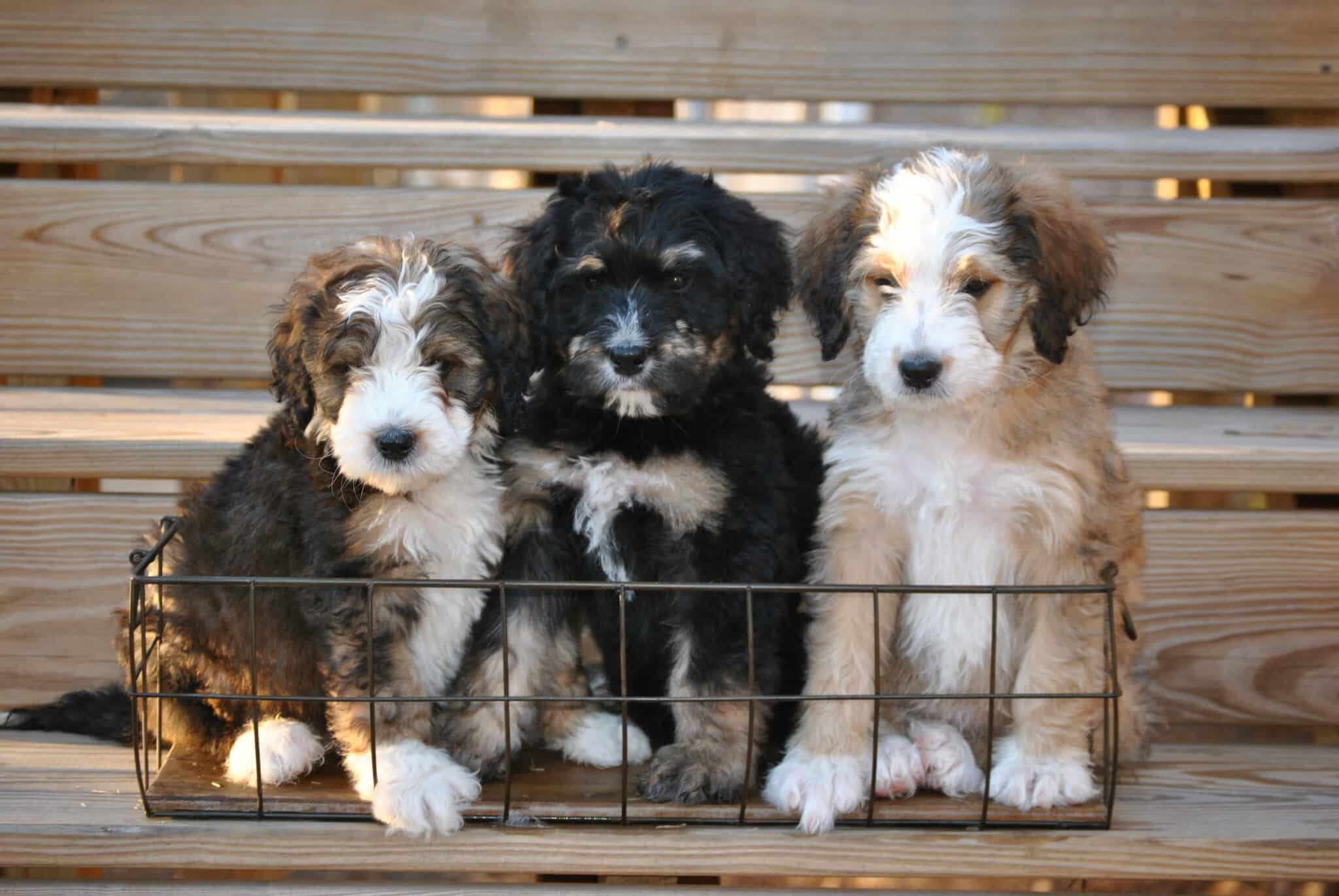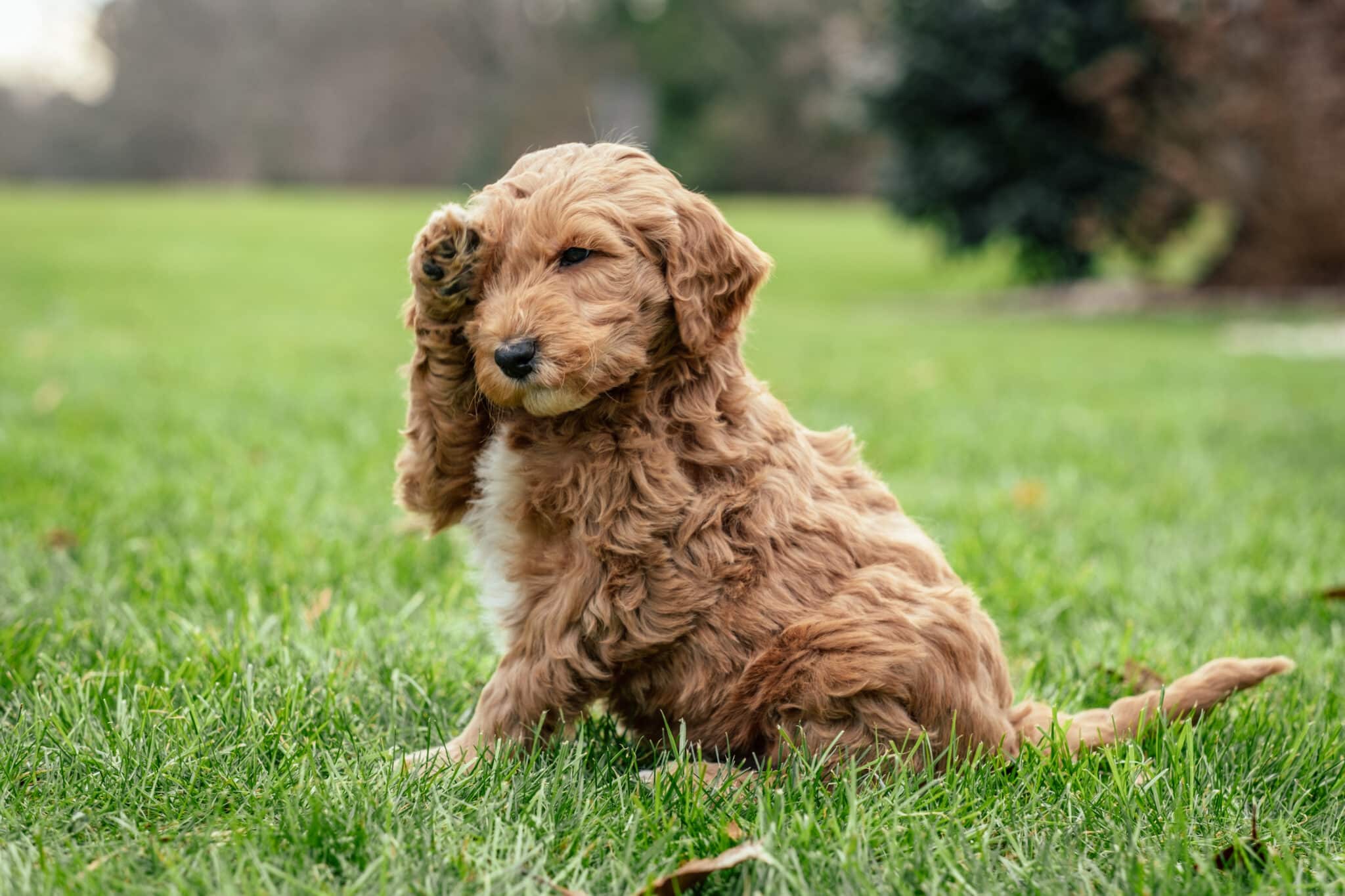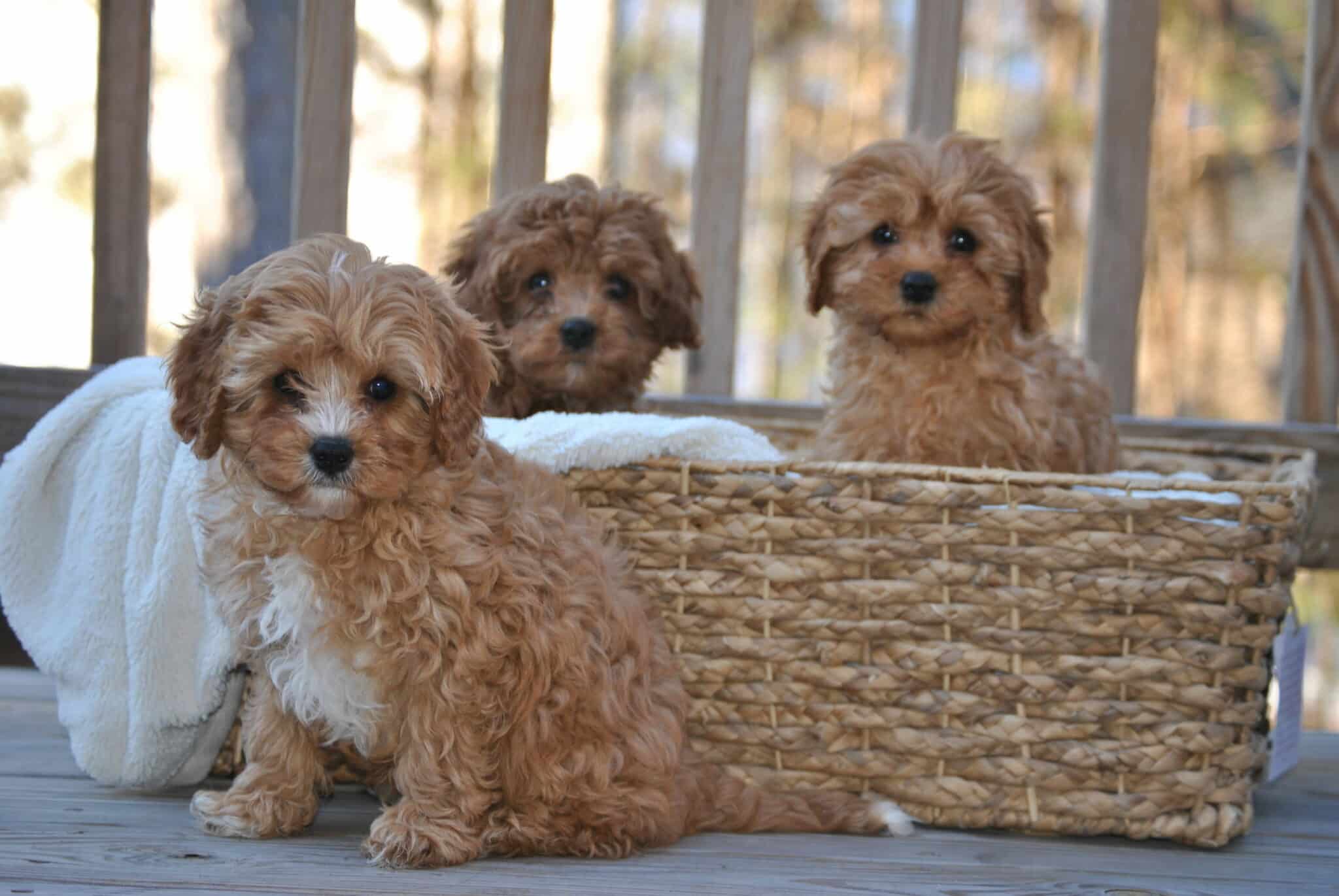Potty Training: Teach Your Puppy to Go Outside
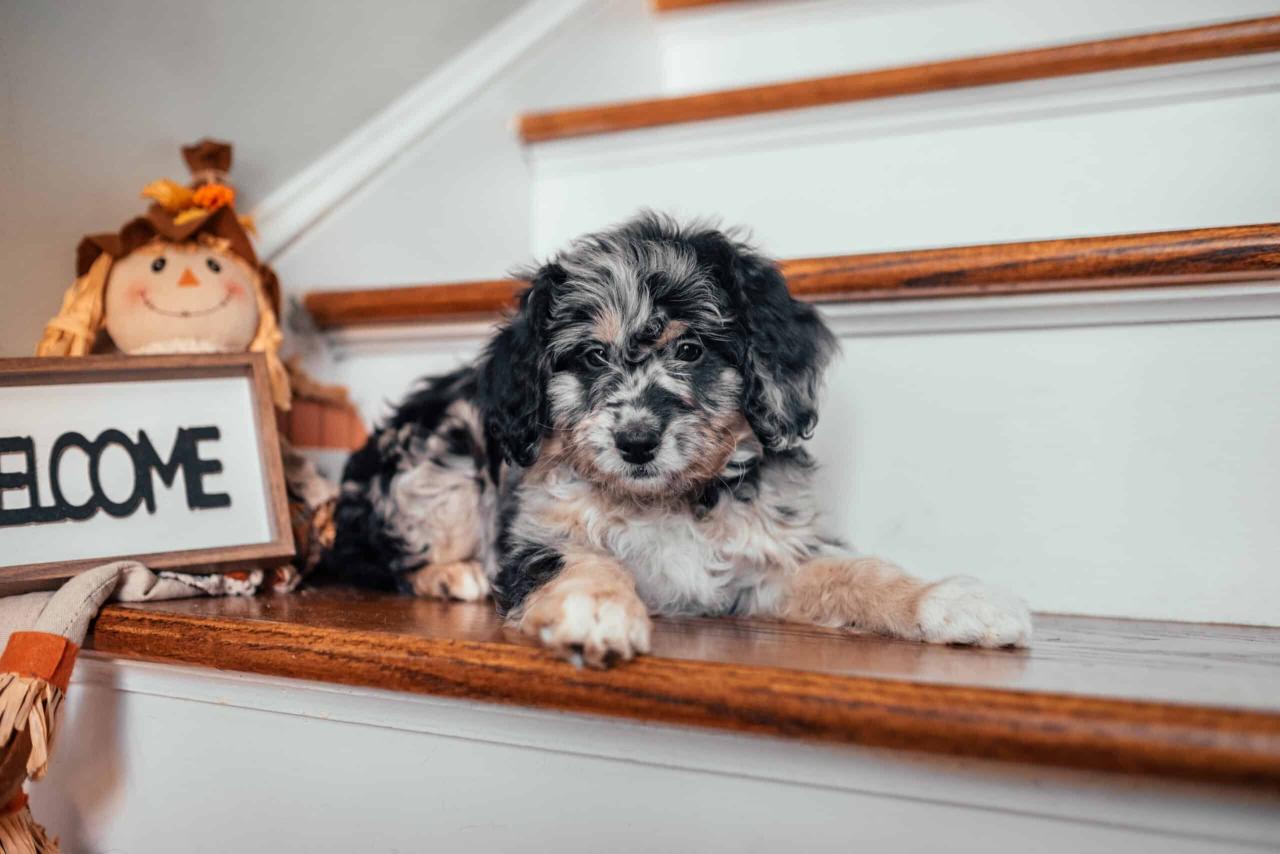
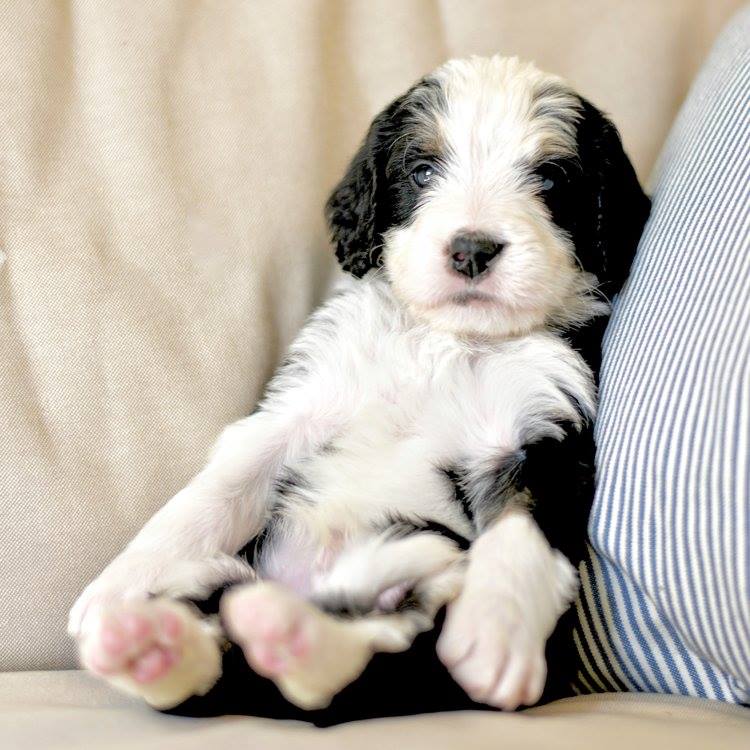 House training is often the scariest part of getting a puppy. After all, nobody likes a stinky mess around their house. However, this process doesn’t have to be stressful. Don’t let potty training your new puppy intimidate you. All you need is commitment, patience, and a lot of consistency. If you take the time to introduce good puppy house training habits from the beginning, it’ll be much easier in the long run—not just for you, but for your puppy as well.
House training is often the scariest part of getting a puppy. After all, nobody likes a stinky mess around their house. However, this process doesn’t have to be stressful. Don’t let potty training your new puppy intimidate you. All you need is commitment, patience, and a lot of consistency. If you take the time to introduce good puppy house training habits from the beginning, it’ll be much easier in the long run—not just for you, but for your puppy as well.
The length of time this process takes varies from dog to dog. Don’t expect (or demand) fast puppy house training results. It takes time to teach your puppy the basic house rules. Good news! If your puppy is from Crockett Doodles, we have already started this process with them. It is much easier to train a new puppy than change the learned behaviors of an older dog.
At Crockett Doodles, we are quick to point out that when your puppy comes to you, he/she is not fully potty trained yet. We believe 8 weeks is the ideal time for a young puppy to join his/her forever family. Eight weeks is still too young for a puppy to be reliably house trained, so when you get your doodle puppy, you will still have some work ahead of you, but hopefully all our effort with the pups will pay dividends for you in the house training process.
“Housetraining your dog or puppy requires patience, commitment and lots of consistency.”
When to Start House Training
House training often starts when the puppy is between 12 to 16 weeks old. That’s when your puppy should have enough control of his bladder to hold it. From 8 to 12 weeks, you will be more focused on crate training your puppy.
Establish a Routine for your pup
It is part of dogs’ natural programming to never eliminate in their den. Part of the puppies’ desire for a clean den area comes from imitating their mother. Your job is to simply recreate what the mother dog does— create set times for feeding, bathroom breaks, playing, and sleeping. Conveniently, right after those times are the most common for a puppy to need to go.
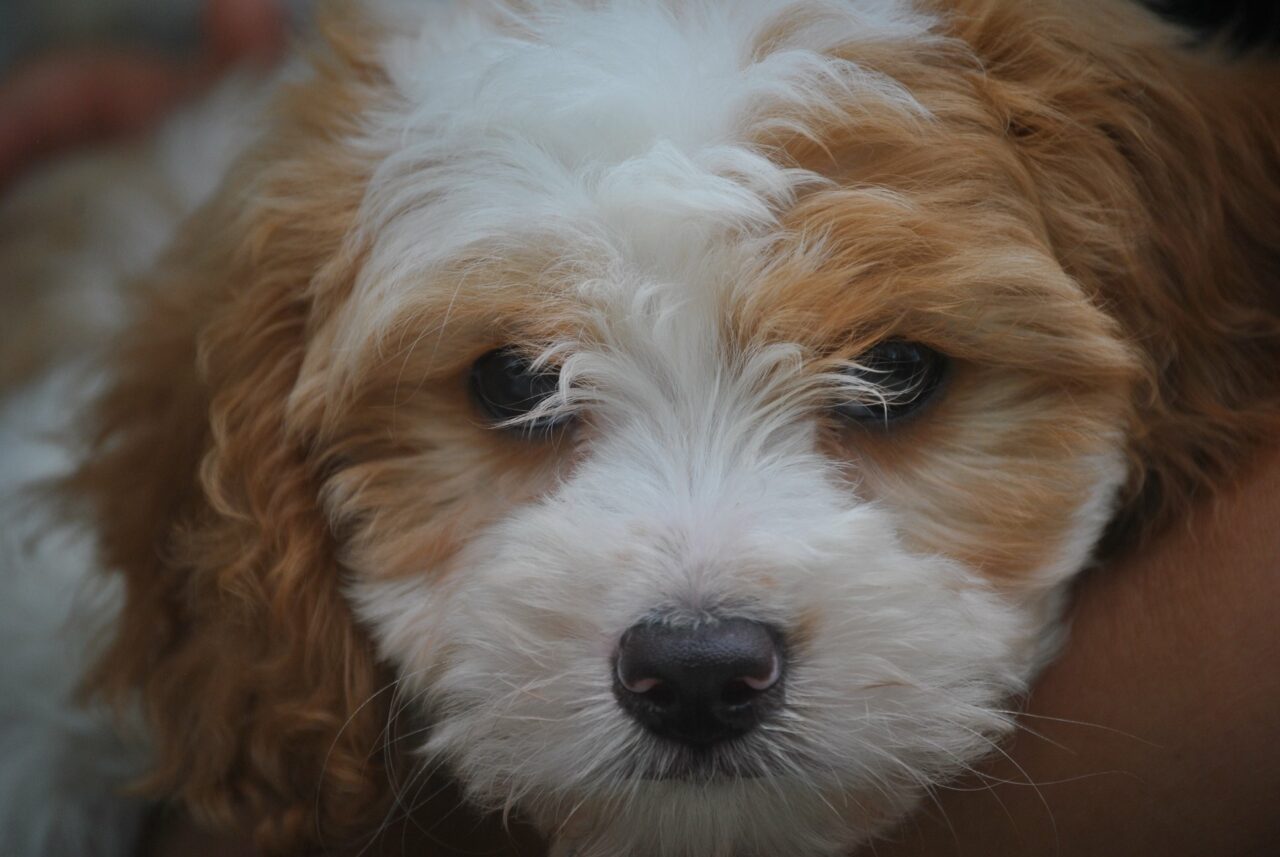 Another bonus is that your puppy’s digestive system is pretty predictable. If you know that your puppy will need to go out between 5 to 30 minutes after eating, you can keep your eyes on the clock and maintain a regular schedule. We recommend keeping the puppy on a regular feeding schedule and take away the food in between meals.
Another bonus is that your puppy’s digestive system is pretty predictable. If you know that your puppy will need to go out between 5 to 30 minutes after eating, you can keep your eyes on the clock and maintain a regular schedule. We recommend keeping the puppy on a regular feeding schedule and take away the food in between meals.
The most common signs that your puppy needs to eliminate: whining, scratching, circling, sniffing, barking. If you see any of these behaviors, take your puppy out right away. It’s always better to be safe than sorry.
Size will be a big determiner of how often your puppy will need to go. Smaller dogs have smaller bladders and higher metabolisms and will require more frequent trips outside.
We often found that female puppies seem to need to go potty slightly more often than males, though this is not always the case. In general it seems like male puppies can hold it a tad longer than their female counterparts.
Potty Training Ideas to Keep in Mind:
- A general rule of thumb is that most medium breed dogs can hold it half the number of hours of weeks old they are. So a 4 week old pup is going potty every 2 hours; an 8 week old pup is going potty every 4 hours; and a 12 week old pup is going potty every 6 hours.
- Bring your puppy to the same spot each time to do his business. Part of this is to be consistent and teach your puppy a habit. More practically, the puppy’s scent will act as a trigger.
- When your puppy finishes his business, praise him or give him a treat.
- Your attitude is a big influencer. If you feeling nervous or impatient, your dog will feel that as well.
- Don’t talk in a high voice. It’s only distracting your puppy from the task at hand.
- Provide regular exercise—exercise helps with motility.
- If you have a particular spot where you want your puppy to go potty (perhaps in ivy at the edge of your grass), you can place a puppy pee pad in that location, or spray ammonia in that spot. The particular scent should help your pup learn to eliminate in that spot.
Best Times to Take Your Puppy Outside
- First thing every morning
- After meals
- After playing
- Before you leave
- When you get home
- After spending time in the crate
- After nap time
- Anytime you’ll leave the puppy alone
- Before bedtime
As you can see, if you don’t remain consistent, the puppy will learn a bad habit that anywhere in the house is fine to go. You can’t get upset at your dog if you’re not doing your part and bring him/her outside.
Using a Crate to House Train
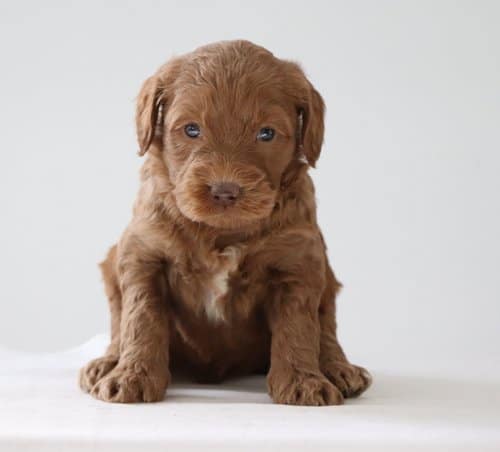 This is not a long-term solution. However, it would be impossible to watch the puppy at all times. Crates can be effective to train your puppy to hold it until taken outside. You’ll also learn cues that your puppy needs to go.
This is not a long-term solution. However, it would be impossible to watch the puppy at all times. Crates can be effective to train your puppy to hold it until taken outside. You’ll also learn cues that your puppy needs to go.
Some guidelines to Remember:
- Make sure the crate is big enough for the puppy, but not too big. There should be enough room for the dog to stand up and turn out. If there is too much room, your puppy will sleep in one corner and eliminate in another.
- Don’t leave your puppy in a crate for long periods of time, especially the first couple months. If your puppy cannot hold it, they will slowly learn that it’s ok to go in the crate.
What To Do When the Puppy Has an Accident
First of all, accidents are bound to happen when your puppy is still learning how to hold it. Do not punish your puppy or cause any negative associations with its bodily functions.
- If you find a spot but didn’t see it happen, don’t get angry. Rubbing your puppy’s nose in it, taking them to the spot and scolding them, or any other punishment will only make them afraid of you. Puppies cannot connect your anger with their accident.
- If you do catch them in the act, clap loudly to grab attention and quickly remove the puppy to the correct location.
You might consider stocking up on some cleaning supplies. I listed a couple good products on my shopping page.
If you put in a little additional work at the beginning and remain consistent through the whole process, your puppy should learn in little time. Once you develop a schedule, it will be so much easier. Remember, this is a very natural process. Enjoy this time with your new ball of fur!
If you’re in Greenville, you can watch episodes of Cesar’s show “The Dog Whisperer” from the Greenville library. I recommend it.
